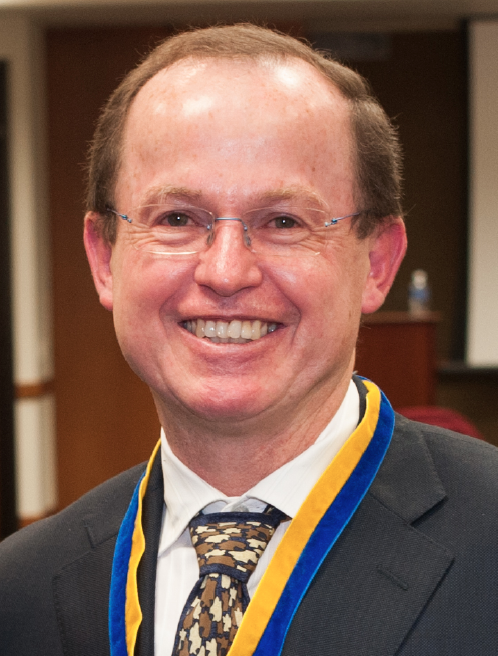Two Pitt Professors Named American Association for the Advancement of Science Fellows
PITTSBURGH—Two University of Pittsburgh professors—a chemist noted for his work with electron transfer in solvents and physicist studying the physical properties of condensed matter—have been honored as fellows in the American Association for the Advancement of Science (AAAS), the nation’s most prestigious scientific society.
David Waldeck, professor in the Department of Chemistry, and Hrvoje Petek, the Richard King Mellon Professor of Physics and Astronomy, both in Pitt’s Kenneth P. Dietrich School of Arts and Sciences, are being inducted to “recognize their efforts toward advancing science applications that are deemed scientifically or socially distinguished,” according to a statement by AAAS.
AAAS recognized Waldeck for “distinguished contributions to the understanding of chemical reactions in the condensed phase, and for transformative administrative, teaching, and service to the discipline,” in a citation accompanying his announcement. Waldeck’s research is in discovering the variables in the electron transfer rate in semiconductor nanoparticle assemblies and in nanophotonics—light-matter interactions for nanostructures and molecular structures. Waldeck, who is also academic director of the Gertrude E. and John M. Petersen Institute of NanoScience and Engineering, was recognized earlier this fall by the Greater Pittsburgh Women Chemists Committee for his work in encouraging women to pursue careers in chemistry.
Petek was cited by AAAS “for pioneering studies of optical coherence in solid state materials through development and applications of novel ultrafast spectroscopic and microscopic techniques.” His work involves manipulating matter with light, with applications in solar energy conversion and imaging or electronic phenomena in nanoscale materials. Petek is the editor-in-chief of Progress in Surface Science.
Two years ago, Petek and his research team were the first to detect a fundamental particle of light-matter interaction in metals, the exciton, a particle created when light photons interact with electrons. Although excitons are well known in molecules and semiconductors, they had never been detected in metals, where they usually exist for only one-tenth of a quadrillionth of a second.
Waldeck and Petek will receive their honors at the AAAS annual meeting in Boston, Mass., on Feb. 18, 2017.
###
12/6/16/klf/jm
Media Resources
Schools of the Health Sciences Media Relations
For more information about Pitt's schools of dental medicine, health and rehabilitation sciences, medicine, nursing, pharmacy, and public health, click here >
To locate stories from health science schools prior to 2013, visit the UPMC news archives »
Urgent Question?
University of Pittsburgh news reps are available to answer urgent media inquiries. Outside of regular business hours (Mon-Fri, 8:30 a.m.-5 p.m.), please email us at media@pitt.edu.
News reps for University of Pittsburgh Health Sciences schools can be reached outside of regular business hours through the paging operator at 1+412-647-2345.


